Kanji Cheat Sheet: Japanese Elementary School Event Schedule
Your family's plans for the next 12 months—decoded!
Get the school year under control with this handy vocab crib sheet.
Probably the most important piece of paper your child will bring home from Japanese elementary school is the yearly schedule of events — it basically determines the whole family’s plans for the next 12 months. It’s a long list of too many to-dos, which for many foreign moms can be a tad frustrating to figure out and make sense of. Having spent a long time trying to decipher this important list myself, I decided to put my experience into practice and share everything I’ve learned over the years here with you.
So if you’re a mom to a child who attends a Japanese school and want to make sure that your return home in summer doesn’t interfere with sports day, parent-teacher meetings and irregular holidays, read on!
Japanese school event calendar Kanji And Kana
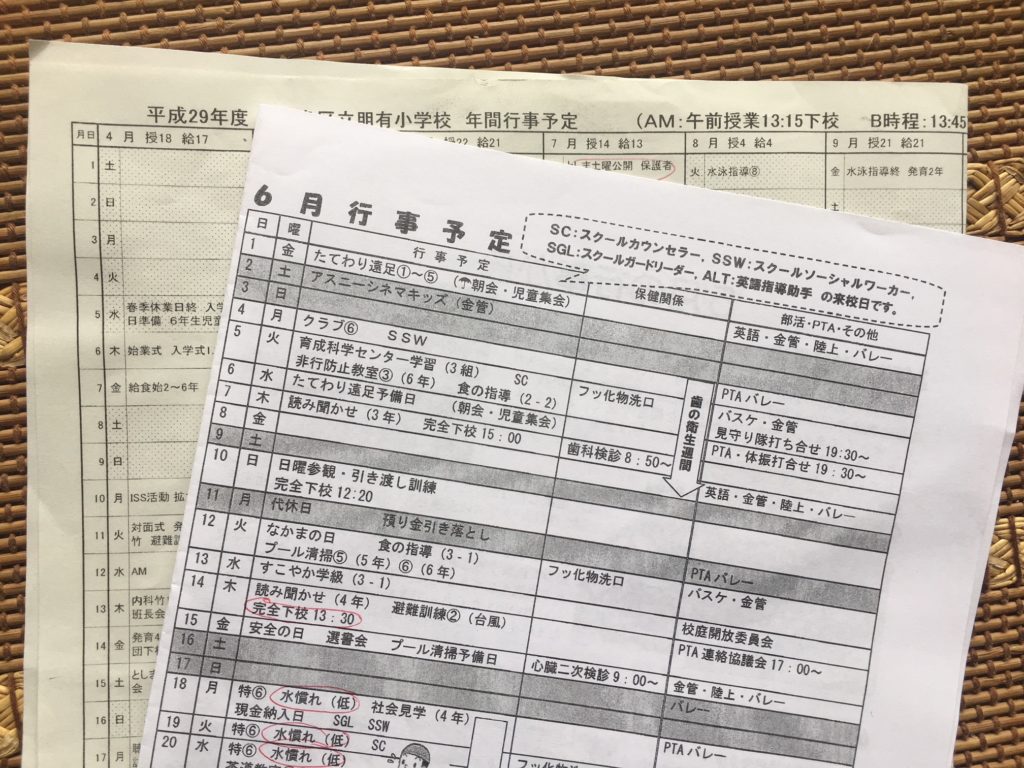
- 行事予定 (Gyouji yotei) Event schedule
This details the main events that the school has planned for a particular period. You should receive an annual (年間, nenkan) one at the start of each school year. It will probably be in a list or chart format, with a title like this: 平成30年度 主な行事予定 (Heisei 30nendo omona gyouji yotei) 2018 Main event schedule
- (4月)行事予定 (4 gatsu gyouji yotei) (April) event schedule
You will also regularly receive a monthly plan, which will be more detailed and up to date.
- 始業式 (Shigyou-shiki) Commencement ceremony
This gathering is held at the start of the school year, and on the first day back at school after vacation, but usually doesn’t involve parents.
- 入学式 (Nyuugaku-shiki) Entrance ceremony
This big day may be held on the same day as the commencement ceremony, or the day after.
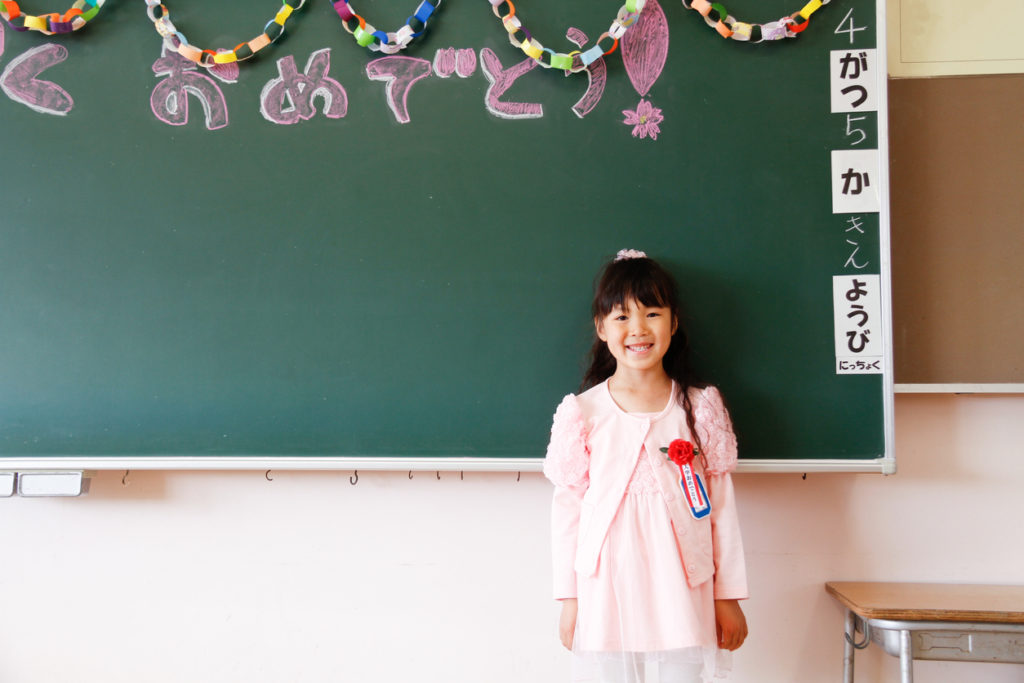
- 給食開始 (Kyuushoku kaishi) Start of school lunch
Love it or hate it, catered school lunches are a quintessential part of Japanese elementary school life. You might also see the abbreviated version, 給食始. The end of the lunch service is marked by 給食終了 (kyuushoku shuuryou).
- 保護者会 (Hogosha-kai) Parent-teacher meeting
Group parent-teacher meetings for each class are usually held in the afternoon, around the start and end of each semester. The teacher will explain how the class is going, what the kids have been doing and what they will be working on next. There is usually an opportunity to ask questions. PTA representatives are typically determined at the first such meeting of the school year—which is not a reason to miss it.
- 家庭訪問 (Katei houmon) Home visit
Under this tradition, the teacher of each class visits the home of each student to talk with a parent. The visits are arranged in advance. Some schools have phased this out and instead conduct area visits, (地域訪問, chiiki houmon) to confirm where students live and if there are any safety issues in their neighborhoods.
- 公開 (Koukai) Open to the public
A few days a year, schools open their classes to public viewing. It may appear on the event schedule as either 公開授業, (koukai jyugyou, open lesson), or open school (学校公開, gakkou koukai). Remember to take slippers with you when visiting the school, and your name tag, if you’ve been issued one. You may know this by the term that’s more often used at kindergarten; 参観日, sankan-bi, or observation day.
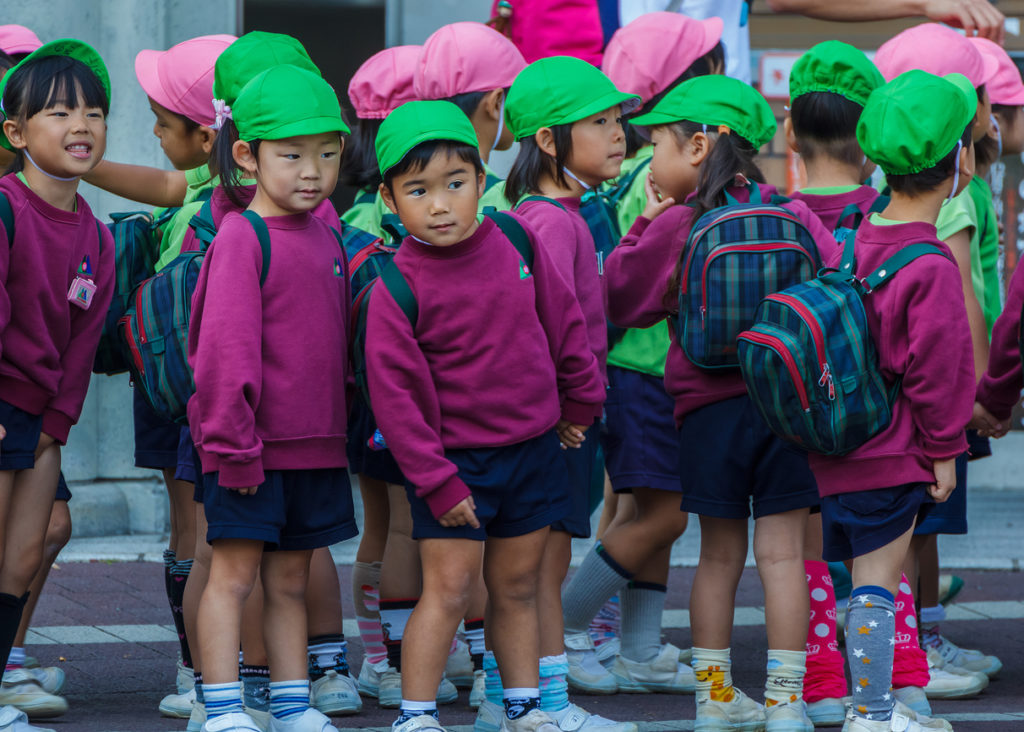
- 遠足 (Ensoku) Excursion
You will probably need to make a lunch box for your child to take along. Also check what will happen if it rains, and make plans as needed. A reserve date (予備日, yobibi) is usually set and if the event gets delayed, it will be rescheduled to that day.
- 水泳指導 (Suiei shidou) Swimming instruction
Also known as pool opening (プール開き, puuru biraki). Don’t forget to stamp your child’s pool card!
- 夏季休業日始 (Kaki kyuugyoubi hajime) Start of summer holidays
This is a complicated way of saying “yasumi” (休み). The end of vacation is noted in a similarly difficult fashion: 冬季休業日終 (touki kyuugyoubi owari) means the end of winter holidays.
- 開校記念日 (Kaikou kinenbi) School anniversary
The anniversary of the day the school first opened is usually celebrated with a holiday. Because the date is unique to each school, this is a great day for a weekday visit to somewhere that’s usually very crowded — like Disneyland!
- 運動会 (Undoukai) Sports Day
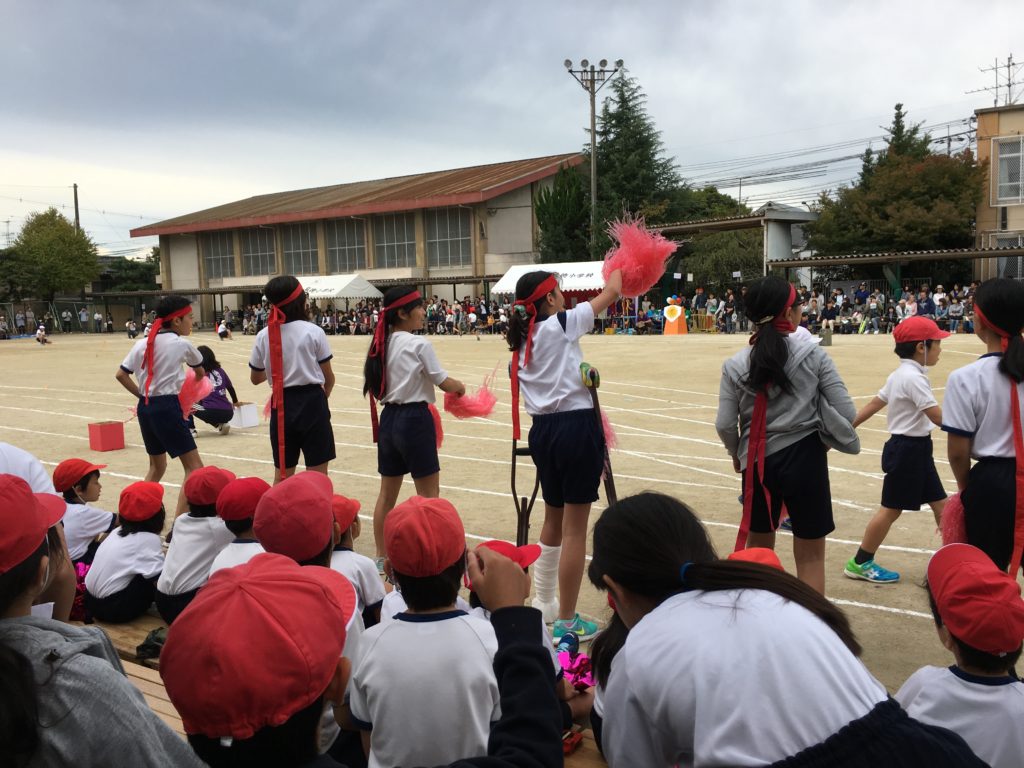
Every Japanese school takes this day extremely seriously. This big event is at the mercy of the elements, so check what will happen in the case of bad weather. Also confirm whether you’ll be eating a self-prepared lunch with your child, or separately, or whether a catered school lunch will be provided, which is likely if the event is postponed to a weekday.
Since sports days are usually held on Saturdays, schools give kids a compensatory holiday, or 振替休業日 (furikae kyuugyouubi) on the following weekday. An alternative term for this is 代休日 (daikyuubi).
- 展覧会 (Tenrankai) Exhibition
This is a collective showing of the students’ artwork, usually held in the school gym.
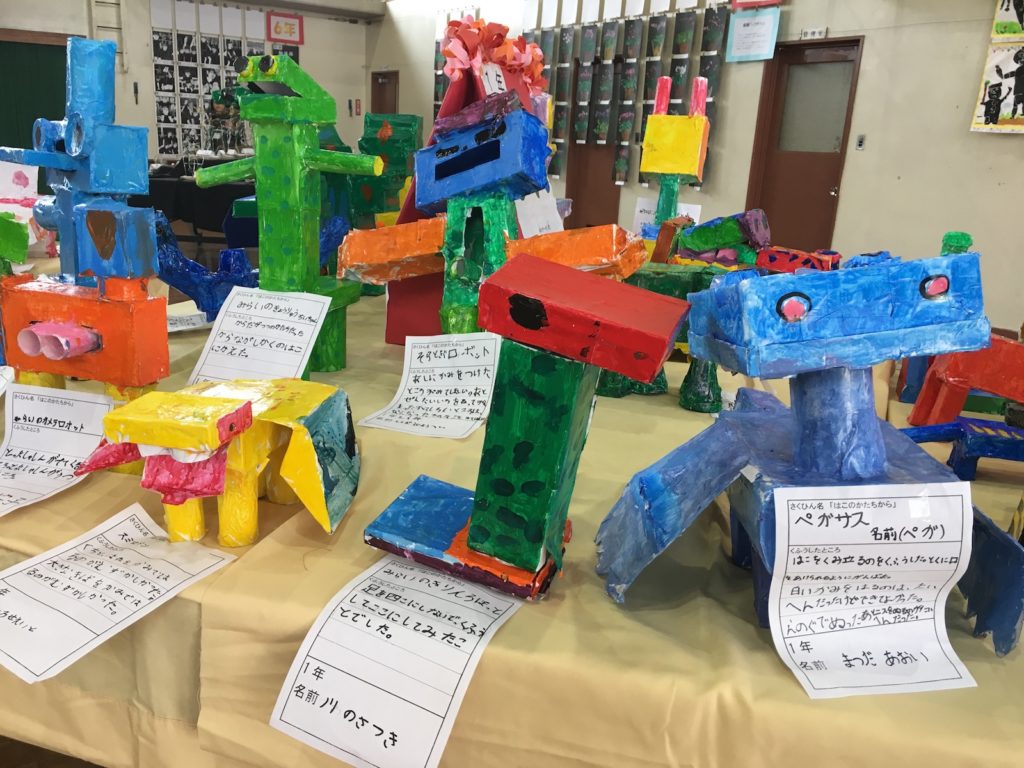
- 引き渡し訓練 (Hikiwatashi kunren) Child pick-up emergency training
Although students participate in a number of 避難訓練 (hinan kunren) emergency training sessions at school throughout the year, this one involves the parents, who have to collect their children from school, as they would be expected to do after a large earthquake.
- 移動教室 (Idou kyoushitsu) Study trip
Literally translated as “mobile classroom,” this refers to school trips of two or more days, usually made by the senior students.
- 修学旅行 (Shuugaku ryokou) Graduation trip
This is exclusive to sixth graders only. It’s a few days trip held, usually, a few months prior to the children’s graduation. You will receive plenty of other detailed information prior to this event.
- 終業式 (Shuugyou-shiki) End of term ceremony
- 修了式 (Shuuryou-shiki) Completion of school year ceremony
- 卒業式 (Sotsugyou-shiki) Graduation ceremony
The big day has finally come. Fifth-grade students will also be involved in the ceremony, but other grades will have the day off.
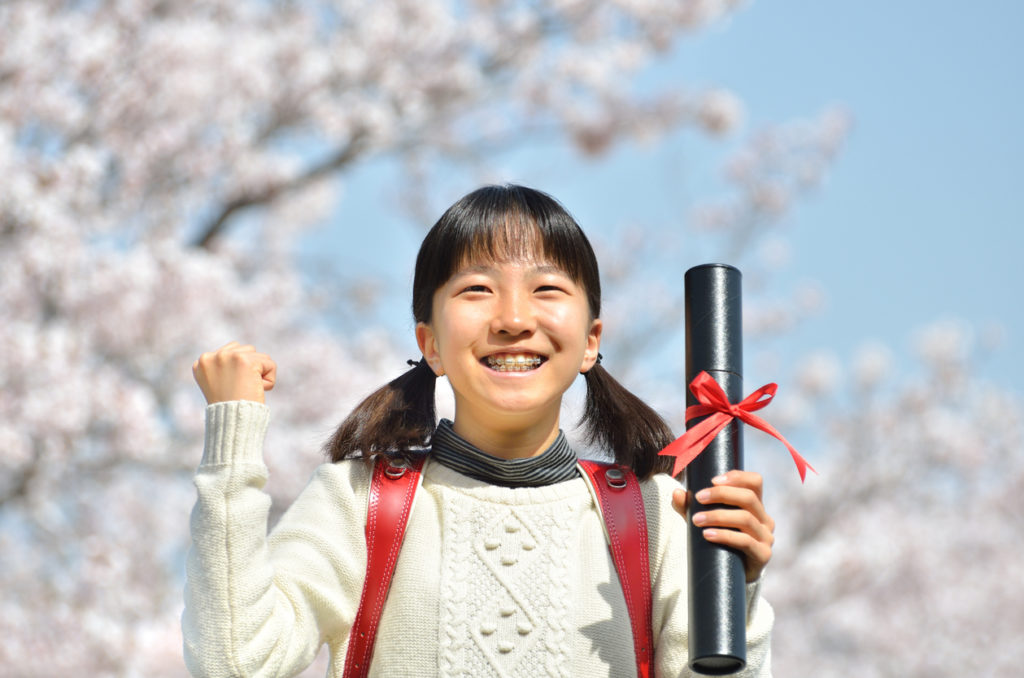
Now that you know what all the important school terms mean, get your calendars and pens out and plan the rest of the year accordingly — stress-free!
Anything else on your school list you’re struggling to understand? Let us know! And if you have any other general questions about Japanese school life, let us know in the comments below. We would be happy to address them in a separate article!
Have trouble with appliances in Japanese? Check out our other kanji cheat sheet articles for general appliances, washers and dryers, microwave ovens and air conditioners.

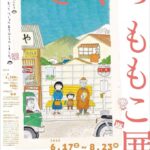
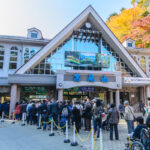
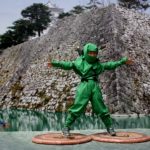

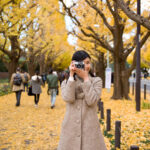







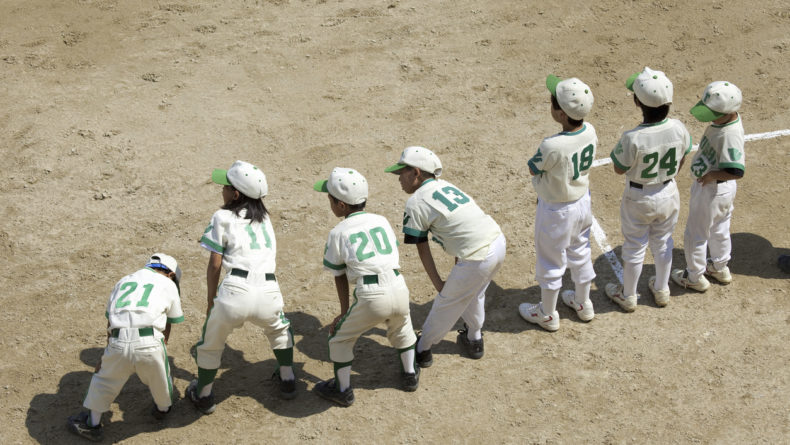
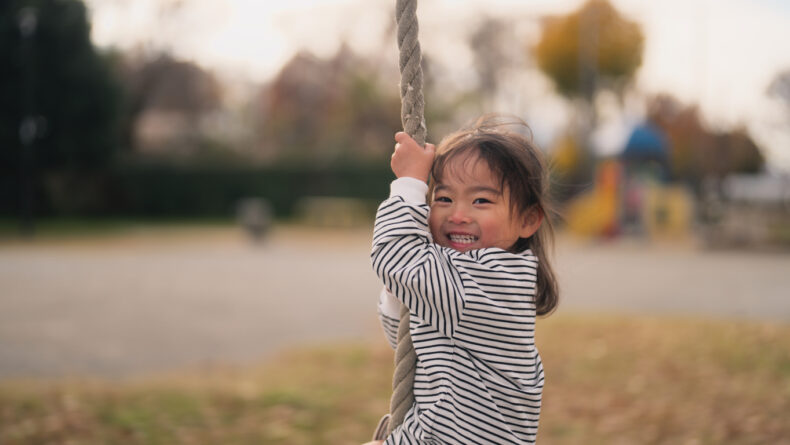
Leave a Reply